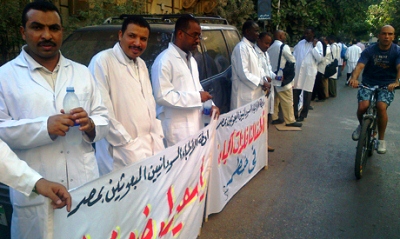Sudanese medical team conduct eye surgeries in Eritrea
May 22, 2016 (KHARTOUM) – A medical team from Sudan conducted eye surgeries to hundreds of Eritreans who converged at the nation’s port city of Massawa last week.

Dr. Isam Segid, the head of the Sudanese medical team indicated that, alongside the surgery, they also conducted ophthalmological diagnosis for more than 1000 Eritreans who had long been suffering with sight disabilities.
The team provided medicines and eyeglasses to the patients they operated.
“Such cooperation plays a pivotal role in creating a solid ground for Eritrean doctors to obtain and share experiences from the Sudanese physicians” said Eyob Frezghy, an Eritrean doctor who worked with the Sudanese doctors.
Earlier this month, the Sudanese team of Ophthalmologists similarly conducted eye surgeries to residents in the Eritrean capital, Asmara who had eye health problems.
Every year, the Ophthalmologists medical group conducts eye surgeries in different regions of the nation. The program was conducted in accordance with an agreement reached between health ministries from the two countries.
Previously, other Sudanese medical teams in different times have also conducted surgeries for Eritrean patients with cardiac problems, kidney ailments and patients with otolaryngology diseases, bone and spinal cord problems.
Such collaboration, doctors say, has significant importance in exchanging experiences and best practices between the two sides.
Over two-thirds of Eritrea’s estimated 4 million populations’ whose majority residing in rural areas live below the national poverty line while a third of the total live in extreme poverty.
The World Bank’s global data estimated that in 2004, there were only 50 physicians per 100,000 people in Eritrea while the World Health Organization (WHO) estimated only three.
The two-year long war over border disputes with Ethiopia which ended in 2000, greatly affected the health sector of a nation, which gained independence from Ethiopia in 1993.
(ST)
